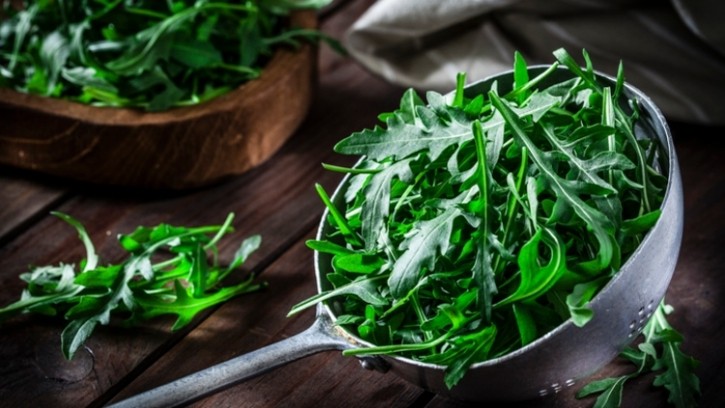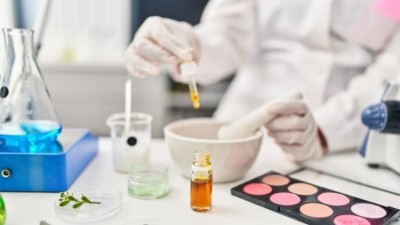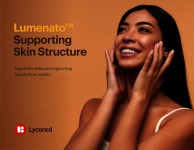Arugula could enhance skin barrier function and alleviating inflammation in skin conditions – new study

By chemically separating E. sativa extract into different components, researchers identified elevated levels of kaempferol, quercetin, and isorhamnetin.
These are flavanols or compounds found in various fruits, vegetables, tea, and other plant-based foods known for their health benefits. Specifically, these flavanols not only harbour anti-inflammatory effects, but also improve the skin's protective barrier by activating PPAR-α or peroxisome proliferator-activated receptors-alpha.
PPRAs are specialised proteins, and the activation of PPAR-α has been found to be instrumental in repairing damaged skin. Furthermore, studies utilising PPAR-α activators have demonstrated their ability to stimulate the development of skin cells in mice and increase the production of specific proteins crucial for maintaining the skin barrier.
In the context of atopic dermatitis (AD), a chronic inflammatory skin disorder characterised by eczematous and pruritic skin, researchers believe activating PPAR-α has proven to have anti-inflammatory effects.
It can mitigate the body's inflammatory responses, and potentially lead to an improvement in the overall functionality of the skin's protective barrier.
At the same time, researchers also note that the flavanols found within E. sativa come with their respective sugar-bound forms, with kaempferol 3-glucoside being the most abundant at 7.4%, followed by quercetin-3-glucoside at 2.3%, and isorhamnetin 3-glucoside at 1.4%.
The anti-inflammatory effects observed were attributed to a combined and enhanced action of the three major flavanol compounds and their sugar-bound forms.
Furthermore, three specific sugar-bound flavanols (kaempferol-3-glucoside, quercetin-3-glucoside, and isorhamnetin-3-glucoside) were identified as activators of PPAR-α through computer simulations.
As such, researchers conclude that E. sativa could be utilised as a for promoting healthy skin and addressing inflammatory skin conditions like AD.
“Ethyl acetate fraction of E. sativa was analyzed to contain high amounts of three flavonols, including kaempferol, quercetin, and isorhamnetin, and their mono-glycosides, which showed the best antioxidant, skin barrier function improvement via PPAR-α activation, and anti-inflammatory effects.” Researchers wrote.
“Together, these results suggest that the flavonol composition of E. sativa can be used as a therapeutic agent for maintaining healthy skin by alleviating inflammatory skin diseases such as atopic dermatitis.”
Source: Current Issues in Molecular Biology
Quantitative Analysis and Molecular Docking Simulation of Flavonols from Eruca sativa Mill. and Their Effect on Skin Barrier Function
https://www.mdpi.com/1467-3045/46/1/25
Authors: Jihye Park et al.
![An expert emphasises the need for greater specificity on the complex skin barrier system. [Getty Images]](/var/wrbm_gb_food_pharma/storage/images/_aliases/wrbm_medium/publications/cosmetics/cosmeticsdesign-asia.com/headlines/formulation-science/brands-need-to-be-more-specific-about-skin-barrier-claims-expert/17095733-1-eng-GB/Brands-need-to-be-more-specific-about-skin-barrier-claims-expert.jpg)

![A New Zealand firm has identified potent antibacterial properties in manuka leaf extract. [Getty Images]](/var/wrbm_gb_food_pharma/storage/images/_aliases/wrbm_medium/publications/cosmetics/cosmeticsdesign-asia.com/headlines/formulation-science/manuka-leaf-has-anti-bacterial-properties-that-can-replace-essential-oil/16925646-1-eng-GB/Manuka-leaf-has-anti-bacterial-properties-that-can-replace-essential-oil.jpg)
![[LG H&H]](/var/wrbm_gb_food_pharma/storage/images/_aliases/wrbm_medium/publications/cosmetics/cosmeticsdesign-asia.com/headlines/formulation-science/skin-science-top-five-stories-on-cosmetics-science-and-formulation9/16897986-1-eng-GB/Skin-science-Top-five-stories-on-cosmetics-science-and-formulation.jpg)






![[Getty Images]](/var/wrbm_gb_food_pharma/storage/images/_aliases/wrbm_tiny/publications/cosmetics/cosmeticsdesign-asia.com/china/china-focus-latest-developments-in-china-s-booming-beauty-market22/17370102-1-eng-GB/China-focus-Latest-developments-in-China-s-booming-beauty-market.jpg)
![YSL's LoveShine launch has sparked a demand surge in Japan. [YSL]](/var/wrbm_gb_food_pharma/storage/images/_aliases/wrbm_tiny/publications/cosmetics/cosmeticsdesign-asia.com/article/2024/04/24/ysl-loveshine-launch-propels-lip-gloss-sales-to-record-highs-in-japan-since-2020/17372064-1-eng-GB/YSL-LoveShine-launch-propels-lip-gloss-sales-to-record-highs-in-Japan-since-2020.jpg)
![There is significant scope for innovation and new launches in the hair repair sector, especially in soaring markets such as China. [Getty Images]](/var/wrbm_gb_food_pharma/storage/images/_aliases/wrbm_tiny/publications/cosmetics/cosmeticsdesign-asia.com/article/2024/04/24/croda-zeroes-in-on-hair-repair-solutions-as-damage-hair-concerns-surge-in-markets-like-china/17362731-1-eng-GB/Croda-zeroes-in-on-hair-repair-solutions-as-damage-hair-concerns-surge-in-markets-like-China.jpg)



![Lubrizol has extended its partnership with C-beauty major PROYA. [PROYA]](/var/wrbm_gb_food_pharma/storage/images/_aliases/wrbm_tiny/publications/cosmetics/cosmeticsdesign-asia.com/headlines/brand-innovation/lubrizol-bullish-on-potential-of-c-beauty-growth-potential/17362515-1-eng-GB/Lubrizol-bullish-on-potential-of-C-beauty-growth-potential.jpg)


